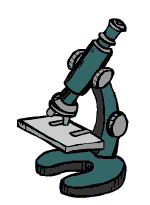HUMAN CELLULAR AGING
EXTENDING YOUR LEGACY

Telomeres
Telomeres are important to the survival of humans because they allow cells to divide without losing genes. Cell division is imperative in order for the growth of new skin, blood, and bone. If not for the existence of telomeres, the ends of chromosomes would fuse together and lead to malfunctions such as cancer or death. The enzyme in telomeres, known as telomerase, prevents telomere shortening and replicative senescence which leads to consistent cell death.
A telomere is a region where DNA repeats on the end of a chromosome to protect it from deterioration (senescence). When cells divide, the enzymes the duplicate the chromosome cannot carry out the duplication all the way to the end of the chromosome. Therefore, cells require telomeres to
divide or otherwise they would lose the important information they contain. Telomeres are considered the aglets on your shoelaces that prevent them from fraying. Telomeres are able to protect our genetic
information, make it possible for our cells to divide, and even explain the
I'm a paragraph. Click here to add your own text and edit me. It's easy.
mechanisms behind aging. Every time a cell divides, the telomere shortens so at one point it is unable to divide anymore and therefore becomes senescent. Research has shown that if telomeres stopped shortening, the lifespan could be extended. While telomeres have been linked to aging, other factors such as stress, radiation, and glycation also determine lifespan.

All of the cells in our body are made up of DNA, which creates our identity as a human being. Our cells are able to tolerate the damage done to them daily by stress or a poor diet by copying themselves. Telomeres shorten each time a cell divides but the DNA remains intact. At one point, telomeres get too short to divide anymore which causes us to age.